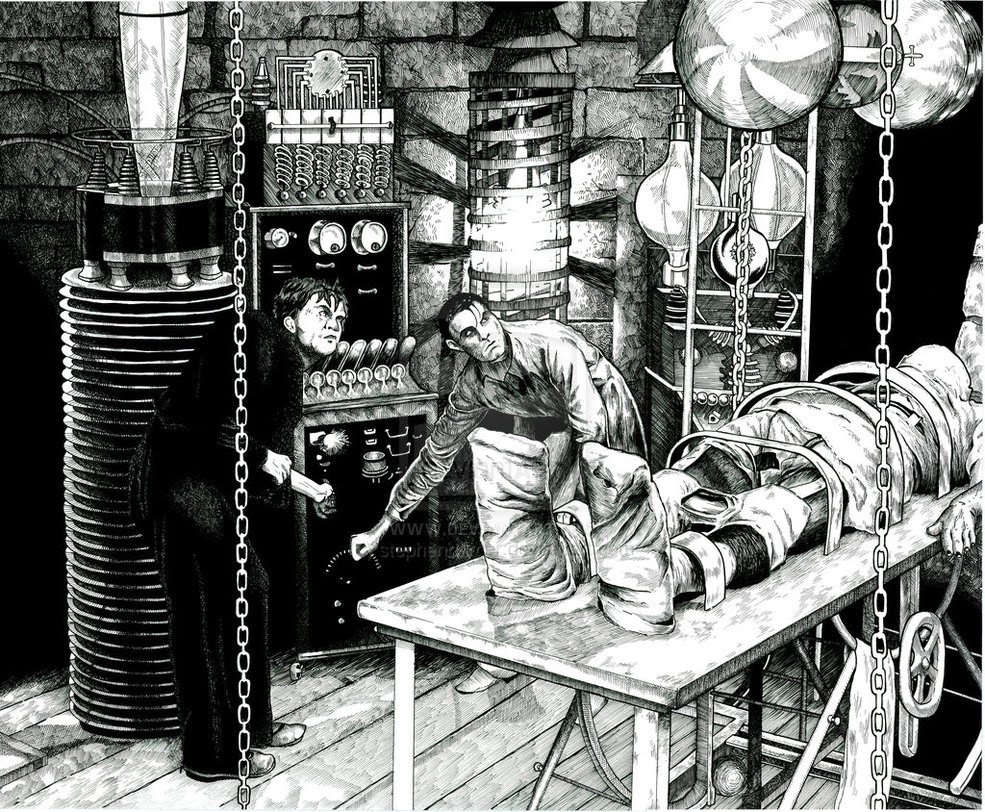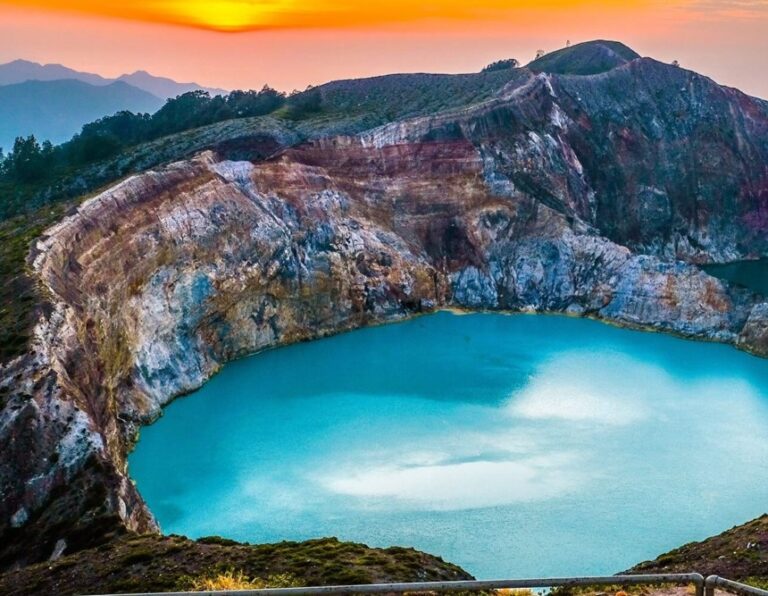The Making of Monsters: Whose Will is Being Done?
The 1964 motion picture, Dr. Strangelove or: How I Learned To Stop Worrying and Love the Bomb, is a story about a misinformed U.S. B-52 bomber crew’s attempt to make it through Soviet air defenses to drop their atomic payload. To prevent a global nuclear holocaust, the United States is forced to cooperate with the USSR to stop its own bomber. The film conveys the sobering message that a conflict between opponents having such overwhelming annihilation power is a lose-lose proposition; with the obvious implication being that the only way to “win” in such a conflict is to avoid it altogether.
Despite being over half a century old (like the still active B-52), the subject-matter of this black comedy is very relevant today. But now, in addition to fears of nuclear destruction, we have added fears of a world without ozone, bees, forests, enough drinking water, nor relief from greenhouse gasses.
This assortment of man-made predicaments, plus many more not named, hints at the probability that our most threatening survival foe is ourselves. And while that is technically true, mankind is the author of our own fate in the same way that Victor Frankenstein was responsible for the havoc wrought by the monster that bears his name.
An arrogant genius, Doctor Frankenstein was initially very proud and satisfied with his accomplishment. But having witnessed the chaos it caused and the fear it instilled, and also being unable to control it, even Dr. Frankenstein came to rue the existence of his creation.
Similarly, the real-world doomsday threat dramatized in Dr. Strangelove is a havoc wrought by man-made creations run monstrously amok and roughshod over the survival interests of mankind. The monsters cited in the Strangelove tale are “United States” and “Soviet Union”. But those are but two of numerous frankensteins (man-made entities) that over the course of history have managed to divide, threaten, horrify, and harm billions in the furtherance of their artificial will.
Divided By Choice(s)
Empowered by great intelligence, mankind developed numerous ways to subsist, including multiple social systems, multiple economic systems, multiple belief systems, and multiple ways of obtaining our basic needs. Such versatility is, in and of itself, an extremely useful survival attribute, but over time our numerous survival avenues (ways-of-life) became the primary focal point of human activity. They became ends instead of just means.
For instance, to satisfy our basic requirement for food we learned to hunt, we learned to farm, and we learned to fish. And corresponding to such skills, many began to see themselves as a hunter, a farmer, a fisherman, a carpenter, or etc. In fact we came to identify ourselves so much with what we did to survive, that many of our names (Smith, Carpenter, Fisher, Farmer) were derived from our professions.
As we began to identify ourselves more closely with how we lived and what we did, we began to identify ourselves less with one another, in particular those who differed in their way-of-life. Our segregation by tribes, faiths, class, wealth, and nations represented our most visceral way-of-life divergences.
The societal significance of individuals and groups identifying themselves so closely with a particular lifestyle or faction, is that in doing so, we began to put, what we refer to today as, “special interests” ahead of the survival interests of our species. The Old West competition between cattlemen and sheepmen is one dramatic example. This clash between what were seemingly very similar ways of life, resulted in armed and deadly skirmishes over land and water control that were notorious enough to be the plot of several Hollywood westerns.
That struggle revealed that protecting their “way-of-life” was for a cattleman a priority that superseded any concern for the well-being of a fellow member of the human species who happened to be a sheep herder, and vice-versa. And that sentiment was shared by the Cold War protagonists named above, as they brazenly risked the lives of everyone in the world via Strangelove-like scenarios such as the Cuban Missile Crisis.
However the key to mankind’s salvation from the monsters we have loosed, can be found in one distinction between the two conflicts described above. That distinction again is in “whose will was being done”.
The sheep and cattle herders, along with any hired guns that they may have employed, had a personal understanding and stake in what they were fighting for or against. Their personal awareness of their circumstances enabled them to determine whether or not the rewards were worth their personal risk. Thus it was the direct will, good or bad, of the humans whose lives or livelihoods were at stake, that was being exercised in those frontier confrontations.
Those Old West adversaries were like frogmen who actually knew that they were in water that could become too hot. Having that awareness was a failsafe that offered the sheep and cattle combatants an opportunity to hop out (extract themselves from the situation) before things got too hot.
Conversely, the precise sticking points that are deemed worth risking nuclear war, are unknown to all but a miniscule few among the billions whose lives are put at risk. When it comes to the highest stake decisions and outcomes, public ignorance has consistently proven to be a bureaucratic feature and not a bug. The selection of the U.S. President (electoral college), the choosing of a Pope (papal conclave), and monetary policy decisions are all opaque to the masses.
More trivial or routine bureaucratic processes, like being granted a fishing or driver’s license, are much more transparent. But as you climb the layers of bureaucracy for even those, e.g. to the levels of environmental and transportation policy making, the public’s view again becomes obscure.
There is a bureaucratic hierarchy behind everything we need to survive (air, water, shelter) as well as the things we don’t (movies, sports). That reality makes it critical that the survival interests of the human species be prioritized, because a showdown between the survival interests of mankind and the interests of our bureaucratic overlords is an inevitability. That unavoidable confrontation is due to the inevitability of change, and the fundamental rigidity of bureaucratic entities.
Bureaucracies are entities that persist beyond the service of their creators through the establishment of systematized habits. When new people (including new leaders) enter a long established government, corporate, religious, or other institutional operation, they are highly likely to be backfill for existing roles. Therefore in their new jobs, they are likely to be following pre-established practices and methods. That means that they are also working to achieve pre-established objectives and goals. And in this way, the initial will and intent of a company, institution, government, or way-of-life can persist far into the future.
Generations after the original people who established the ways-of-life are gone, new oilmen, new cattlemen, new clergymen, and new whatever, vigorously defend the continued existence of their “traditional” wealth, influence, and power streams both out of habit and the sense of entitlement that stems from the notion that “this is how things have always (long) been”.
For example, cattlemen are still fighting battles today. But now they do it the bureaucratic way, by utilizing various associations and deploying armies of lawyers and lobbyists (modern-day hired guns). The outcomes of the battles they waged on Capitol Hill have had an effect on the lives of millions of unwitting people, whether they be consumers of beef, or just consumers of water and air that may be affected by beef producing operations.
Over the years the public at-large has “caught several strays” from the effects of relaxed meat production regulations and poor operating practices. Those have included e-coli, mad cow disease, listeria, and other contamination issues that have made their way onto the plates of consumers.
Hard to Turn, Harder to Kill
The tendency of bureaucracies to “grandfather in” behaviors and goals makes them inherently conservative. Changes to their established methods and practices, even those that have outlived their usefulness, tend to come relatively slowly if at all. Due to their inherently conservative nature, the older and larger a bureaucracy becomes, the more likely are its goals and methods to be out of step with the needs and desires of ordinary citizens, subjects, or even customers. Its priorities will instead align with maintaining status-quos.
Imagine for example that stemming from a desire to maintain a soldier’s readiness to march, the United States long ago established a Department of Feet. The Department of Feet would be headed by a Foot Secretary, and it would have the requisite budget and bureaucratic infrastructure.
Now imagine that one day, after several independent reviews, it was determined (not surprisingly) that the Department of Feet was an unnecessary unit that should be considered for termination. What do you think would happen next?
Well as you would expect, there would be a considerable number of entities that enjoyed some financial or political benefit from the existence of the Foot Department. There would be a cobbler’s lobby represented by companies like Nike, Florsheim, or New Balance; there would be a shoe sellers lobby, a sock lobby, a cotton lobby, a Podiatrist Association lobby, and so on. There would also be members of Congress from shoe or sock producing regions who would be against dissolving the department. And of course there would be a pro Foot Department media campaign, with radio and tv commercials, perhaps using the James Brown hit “Get on the Good Foot” as a theme. Together all of these groups would bring lots of money and pressure to bear against those trying to shut down even an entity as ridiculous as the Department of Feet.
And that pretty much sums up the reality of human civilization as we know it. It is a largely conservative amalgamation of bureaucracies that are configured first and foremost to act in the best interest of their own survival. And like vampires of fiction, it depends upon the aid of human familiars (those who derive benefit from the bureaucracy’s existence) to enable it to continue preying upon our future in the political, social, and economic dark of night.
The unfortunate catch is that nearly everyone is a “familiar” to some extent, as most derive some portion of benefit from mankind’s erected bureaucracies. That particular circumstance has made the masses extremely susceptible to being divided and conquered; because our individual desire to protect the benefits that we personally enjoy (e.g. our status or job) makes us defacto agents of bureaucratic forces.
This desire to hold on to the trappings of a toxic bureaucracy was exemplified by the cool tech industry employees in the Frogmen of Aquaria tale. They perished still having a job, but without a life to live, nor descendants to remember them or lay them to rest. That gruesome epitaph was due to their service to bureaucracy (intentionally or not) taking priority over the wellbeing of their species.
The frogman tale is a caution to mankind to be extremely wary of entities for which human lives are the grist of their existence. For such entities the sacrifice of human life is normalized as a condition of fealty, or as an acceptable cost of their operation. For example religious entities once literally performed sacrificial acts upon altars and burning stakes, and nations still sacrifice their young as soldiers on the battlefield.
In addition, businesses and industries have routinely put their interests ahead of the lives of their employees and the public at-large. And lest anyone think that to be just hyperbole and conjecture, consider the sobering example of mankind’s relationship with fossil fuels.
In our global reality the sorely needed transition to sustainable or so-called “green” energy means a greater chance for the continued survival of mankind, as well as other Earth species. However green energy from the perspective of the fossil fuel industry bodes death, or at least great harm for Big Oil, Big Coal, and those suckling at their teats. So like Big Cool in Aquaria, the fossil fuel industry has been fighting vigorously for its artificial life against clean and sustainable energy efforts. And they have done so, even at the risk of a human culling from the very real threat of environmental contamination and man-made climate inflections.
For example, the industry’s introduction of lead as an additive in gasoline is widely acknowledged to be responsible for more deaths than any other event in human history. On top of the massive loss of life attributed to the introduction of leaded fuel, it was also responsible for a drop in the IQ of millions exposed to lead contaminated air and soil. And due to the long duration of the contaminant, those tolls of death, illness, and mental defect are still climbing more than a half-century since the sale of leaded gasoline was finally banned in the United States.
It should also be understood that the decision to use lead as an additive in gasoline was no innocent mistake. Despite being fully aware of the detrimental effects of lead in gasoline from the time of its inception, it was sold and aggressively marketed for one-hundred years. And as mentioned above, that legacy of human survival indifference lives on today in efforts by fossil fuel bureaucracies to deter actions to address dangerous climate changes being caused in part by carbon emissions from the production and usage of fossil fuels.
Such nicks against the viability of the human species are being made by almost every industry, and in just about every corner of the world. This all encompassing web of culpability indicates the extent to which behaviors that are in the best survival interests of the human species can be, and have been, suppressed or overridden by the will and designs of powerful and selfish bureaucratic interests.
Copyright 2024 Reginald Patterson, All rights reserved.



